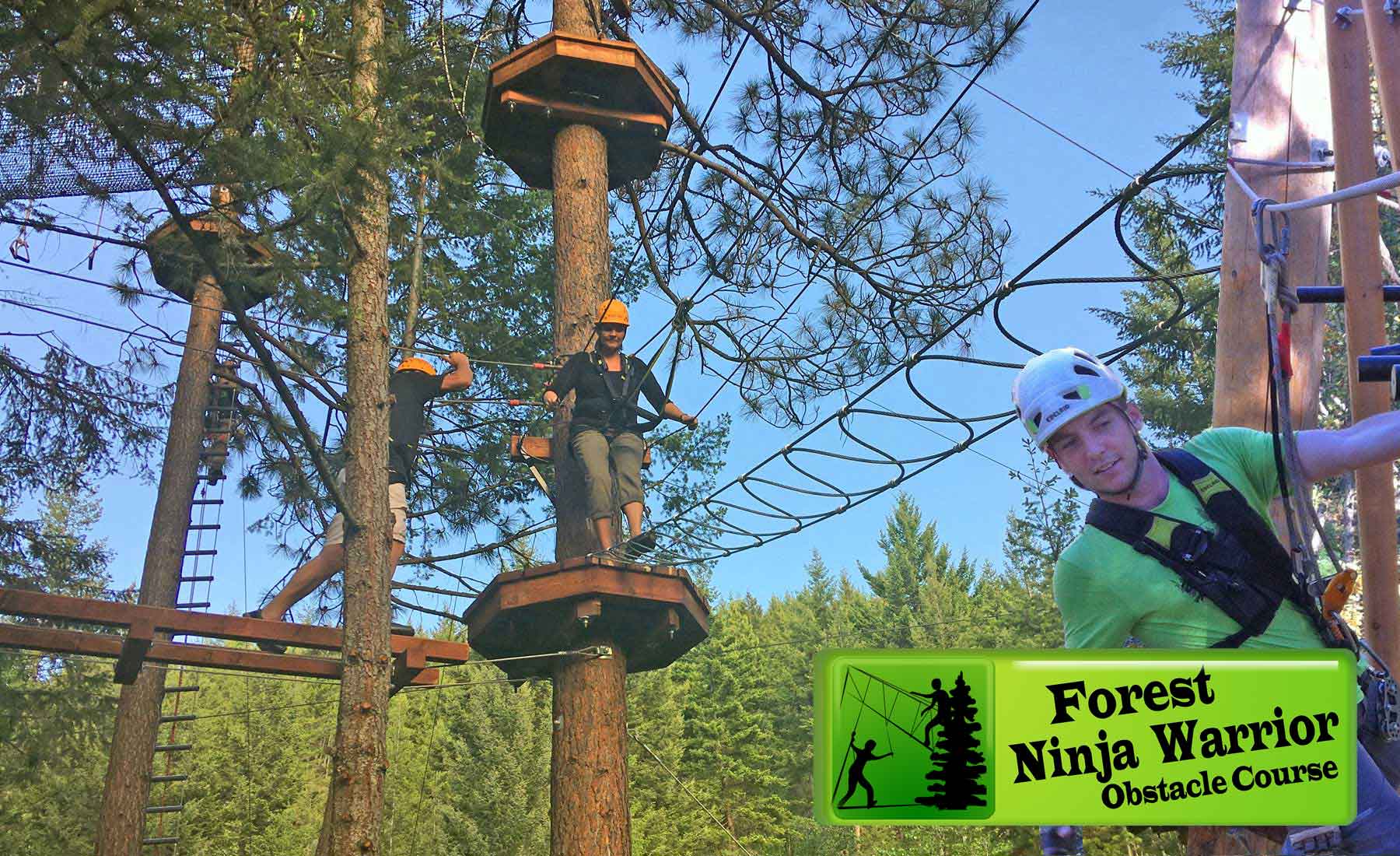Both of us stood in the hot sun on a very small platform secured 50 feet (20 m) up in a large pine tree. We were looking anywhere but straight down.
We were an unlikely pair to be perched and shaking for somewhat different reasons on the last obstacle on the aerial ropes course. Given the age difference, it is understandable that we approach mortality, and threats to it, quite differently. For Patrick, my 11-year-old grandson, he can prove that he can overcome his fear and conquer something he has never done before. On the other hand, I am dealing with the increasing intensity of symptoms due to Parkinson’s disease. At 68 years’ old, I need to face the fear that soon I may not be able to enjoy such adventures.
As part of a four-day adventure, Patrick and I started
out on the first day by riding 350 km to my hometown, Vernon, British Columbia,
on my Spyder. On our way into town, I noticed a large billboard advertisement
for a zip line and ropes course. “That might be exciting for the two of us to try”,
I said to myself. 
Patrick was game so we arrived early the following morning to scope out the place. Before we knew it, we were putting on the necessary safety harnesses and helmets and receiving our instructions and made our way to the first of the three courses.
We both managed to complete the “green course“, where the cables or ropes on which we balanced were strung from tree to tree at a height of only 15 to 20 feet (6 m). It was challenging, but not frightening.
Next, was the “blue course”. Twice as high, our safety harnesses definitely proved to be necessary. On several occasions, I found myself dangling as if caught in a spider’s web, straining to find a way back onto a stable cable to rest and recover my strength to continue. We managed to complete the series of short zip lines that sent us literally zipping from one tree to another.
 After resting our tired arms and legs, we moved
to the last course, the ultimate challenge, the “black course”. Patrick noted that, as opposed to the lower
courses, he was the youngest black course challenger, while I appeared to be
the oldest.
After resting our tired arms and legs, we moved
to the last course, the ultimate challenge, the “black course”. Patrick noted that, as opposed to the lower
courses, he was the youngest black course challenger, while I appeared to be
the oldest.
The beginning portions of the black course were similar to the first two courses, just twice as high off the ground, and twice as challenging. The final “obstacle” however is a free fall from 50 feet up, held only by a bungee cord device to which you attached your safety harness. It was, supposedly, able to halt your downward plunge just before hitting the ground.
Patrick was first up. He stood on the edge of the platform for a long time, looking down at what seemed like a very long distance. He hesitated, despite the cheering and encouragement from our guide and others on the ground. I heard them shouting, “Come on Patrick. 3 – 2 – 1 – jump!" I found myself adding my voice to those below with words something like, “You can do it. Don’t let it beat you.” Little did he know that I was saying those words for my own benefit as much as for his encouragement. But his response startled me. “Push me,” he said. I immediately had two thoughts: first, this situation is not in the book, “How To Care for your Grandkids,” and second, it didn’t require much in the way of legal reasoning to conclude that if something went wrong I would certainly be blamed.
Realizing I had to encourage him to take the leap (but not compel him to do so), I reverted to Patrick’s original strategy: the countdown method. Although it had previously failed, when I reached the final “Jump!” he bravely pushed off from the platform and plummeted downward until the bungee apparatus interrupted the fall before Patrick hit the forest floor. Success!
Now it was my turn. I hesitated, but only long enough to realize that I had no excuse. Looking down, with no one to give the final countdown, I whispered to myself the advice given by our instructor at the beginning: “Trust your equipment”. I stepped off the platform, surprised at how fast I fell, and equally surprised at how fast my descent halted, well before I hit the ground.
Later, as Patrick and I returned the safety harnesses and helmets, we were both thrilled to have conquered our fears. Our next adventure? Skydiving?






























